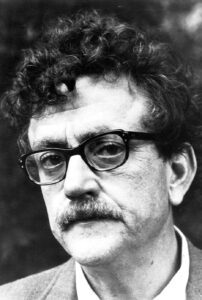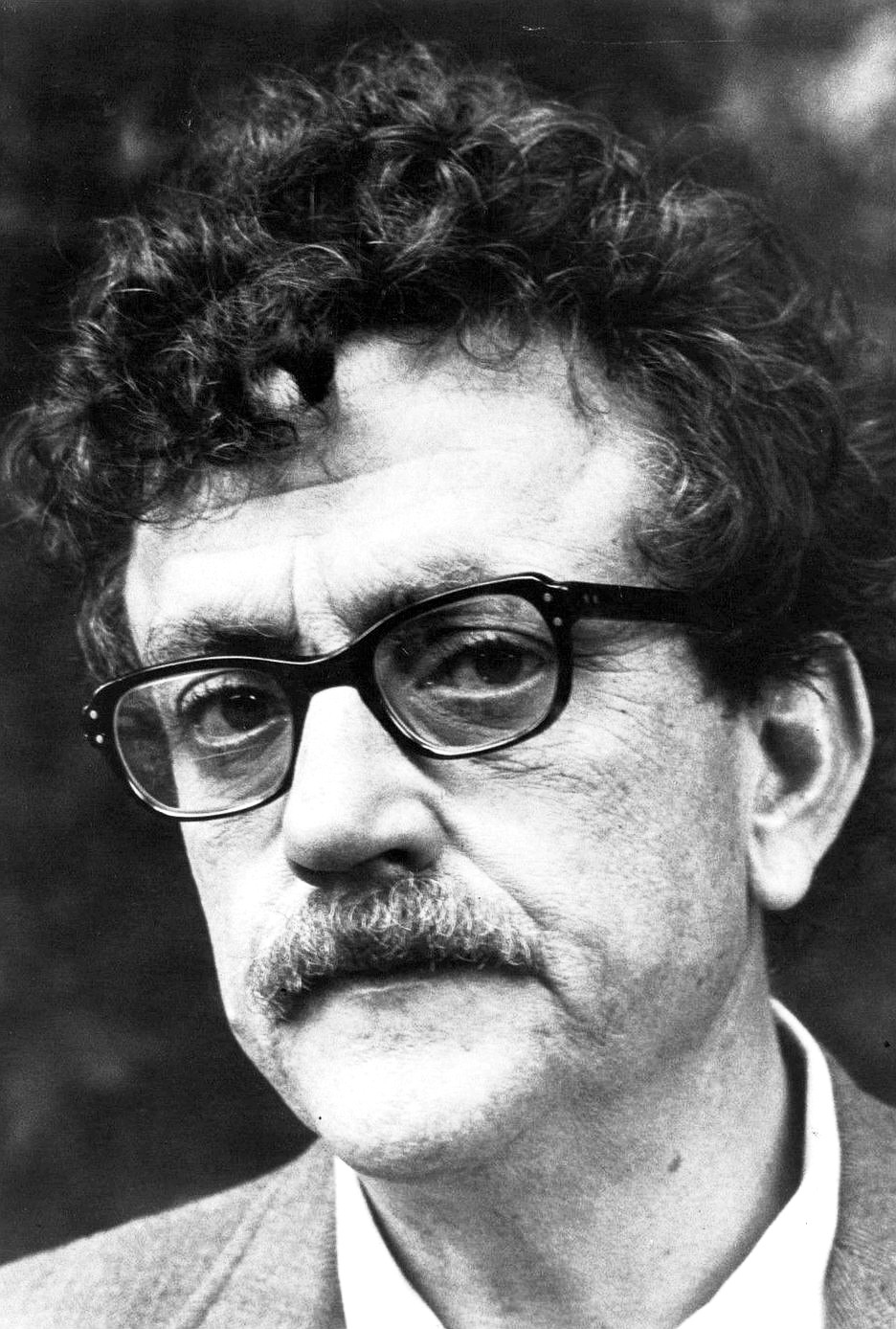Kurt Vonnegut, born on November 11, 1922, in Indianapolis, Indiana, was an American writer known for his unique blend of satire, science fiction, and humanist philosophy. With his distinctive voice and irreverent wit, Vonnegut explored themes of war, technology, and the human condition, becoming one of the most influential and celebrated authors of the 20th century. This biography delves into Vonnegut’s life, his literary achievements, and the enduring impact of his work on American literature.
Vonnegut’s early years were marked by both personal and historical challenges. As a young man, he enlisted in the U.S. Army and served in World War II. Captured by German forces during the Battle of the Bulge, Vonnegut experienced firsthand the horrors of war and survived the Allied bombing of Dresden as a prisoner of war. These traumatic experiences would later shape his writing, providing him with a unique perspective on the destructive nature of human conflict.
After the war, Vonnegut pursued a career in writing, initially working as a journalist and publicist. However, it was his foray into fiction that would define his literary legacy. In 1952, he published his first novel, “Player Piano,” a dystopian critique of automation and its impact on human society. This marked the beginning of Vonnegut’s exploration of themes that would become central to his body of work.
Vonnegut’s breakthrough novel came in 1969 with the publication of “Slaughterhouse-Five.” Inspired by his experiences in Dresden, the novel follows the story of Billy Pilgrim, an optometrist who becomes “unstuck in time” and experiences various moments of his life, including the war. With its nonlinear narrative and blending of science fiction elements, Vonnegut offered a unique and poignant reflection on the absurdity of war and the concept of free will.
Throughout his career, Vonnegut continued to challenge societal norms and conventions through his writing. He employed satire and dark humor to dissect contemporary issues, such as consumerism, bureaucracy, and the dehumanizing effects of technology. Works like “Cat’s Cradle” (1963), “Breakfast of Champions” (1973), and “Mother Night” (1961) showcase Vonnegut’s ability to blend social critique with imaginative storytelling, creating narratives that are both thought-provoking and entertaining.
Vonnegut’s writing style was characterized by its simplicity and accessibility. He employed a direct and conversational tone, often breaking the fourth wall and addressing the reader directly. This approach, combined with his sharp wit and knack for memorable one-liners, allowed Vonnegut to engage readers on a personal level, drawing them into his often surreal and satirical worlds.
While Vonnegut’s works received critical acclaim, they were not always embraced by mainstream literary circles during his lifetime. His unique blend of science fiction, satire, and humanist philosophy defied traditional genre boundaries, making it difficult to categorize his writing. However, his works found a devoted readership, with many considering him a literary voice for the countercultural movements of the 1960s and 1970s.
Beyond his novels, Vonnegut also made significant contributions to non-fiction and essay writing. His collection of essays, “Wampeters, Foma & Granfalloons” (1974), and his memoir, “A Man Without a Country” (2005), offered further insights into his worldview, blending personal anecdotes with social and political commentary. In these works, Vonnegut’s humanist beliefs shine through, emphasizing the importance of empathy, kindness, and the pursuit of a more compassionate society.
Kurt Vonnegut’s impact on American literature extends far beyond his lifetime. His writings continue to inspire readers with their sharp social commentary, philosophical musings, and poignant exploration of the human condition. Vonnegut’s ability to blend satire, science fiction, and humanism into a singular narrative voice solidifies his status as a visionary writer. His works challenge readers to question the world around them, confront their own assumptions, and strive for a better future.
Vonnegut’s influence can be seen in the works of numerous contemporary writers who draw inspiration from his unique blend of social satire and heartfelt storytelling. His legacy as a literary icon and a champion of humanism remains intact, and his writings continue to resonate with audiences, offering insights into the complexities of human existence and the enduring power of literature to provoke thought and inspire change.











